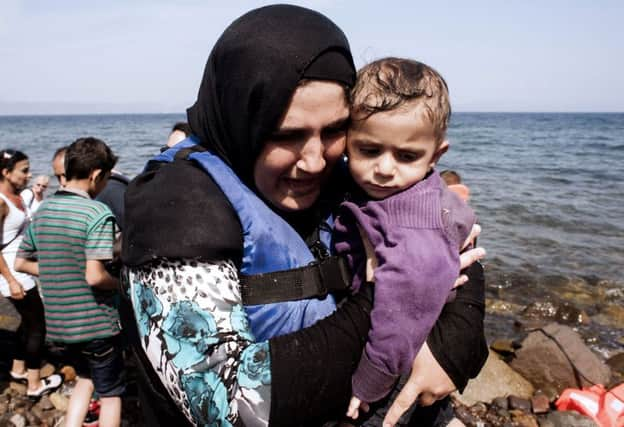Jane Bradley: These horrors are too much for our kids


I thought we were going to have a war. Indeed, we were having a war.
At school, we learned about Saddam Hussein, what a bad man he had been. Our teachers were hugely proud that we were so interested in a news event.
Advertisement
Hide AdAdvertisement
Hide AdBut to us children, war was something that we feared would have an enormous impact on our day-to-day life. We’d learned about the First and Second World Wars at school; heard the stories from our older relatives – I’d seen the pictures of my own grandparents in military uniform and been allowed to look at their ID cards and ration books.
But suddenly something which I had previously believed was ancient history became real. A war, I thought, would mean a Blitz: burning buildings, rationing, evacuees. Death.
I remember consulting books at school and trying to calculate whether, if the army followed the same protocol that it had in its conscription process in the 1940s, my dad would be young enough to be called up. I lay awake at night, silently worrying, as did many of my friends.
I don’t think it occurred to our parents or teachers to explain to us that in this particular war, we were the lucky ones – that it was happening a long way away, that at that point in time, we weren’t going to be affected immediately, our homes and families were not under threat.
Why would it? That was obvious to them as adults. It just wasn’t obvious to us children who, although bright and interested in current affairs, had comparatively little knowledge of international foreign policy or even world geography.
This week, my friend told me that her six-year-old daughter has been similarly traumatised by an assembly her school recently held about the Syrian refugee crisis. The whole school, from the five-year-olds up to the 11-year-olds, were told by their teachers, in graphic detail, about the horrendous conditions the refugees have suffered, both in their war-torn home country and on their journey to Europe.
“She now thinks there is going to be a toxic war in Britain and that we’re all going to have to leave our homes,” my friend said, exhausted after her umpteenth successive night without any sleep.
My friend has tackled the situation admirably, by turning her daughter’s thoughts towards what she can do to help these people in need. Together they have created shoeboxes full of goods for refugees living in camps in Europe. But she is still having trouble sleeping at night.
Advertisement
Hide AdAdvertisement
Hide AdOn one hand, we are told we should ensure that our children stay children longer. According to modern parenting guidelines, we should not push youngsters academically for as long as possible. We should encourage them to spend time outside, indulging in free play, letting their imaginations and creativity run wild.
Many schools are now engaged in Forest School programmes, giving youngsters the chance to spend time poking around with sticks, building camp fires and dens out of branches: promoting an idyllic, simple life. Let children be children, we are told. Don’t make them grow up too quickly. Screen time is bad; TV poisons their brains.
Yet, on the other hand, they are, as part of their statutory education, being made to face up to very adult world events, which, at such a tender age, they are not equipped to process. Don’t let them watch violent films, which could be explained away as fiction – but do let them know about the true and terrifying horrors taking place in the real world.
It is true that Syrian children caught up in this humanitarian tragedy have no choice but to experience this horror. And the impact of that on their young minds – and bodies – cannot be underestimated. It is also true that young people need to understand all of this at some point, in the hope that the next generation can work to stop it – and similar atrocities – from happening. But perhaps not as infants.
Indeed, if the Syrian parents could have avoided their children knowing that such horrors exist, I’m certain they would have done. They, sadly, have no choice. We do.